
Robert Dean, ThD
President
Providence University College and Theological Seminary
The Canadian-American Theological Association (CATA) is a Christian, ecumenical, academic society that finds its primary membership and interest in North America. Our members and Executive Board come from a variety of cultural backgrounds, Christian traditions, and geographical locations. All, however, identify with the Christian faith as outlined in such classic statements as the Apostles’ Creed and Nicene Creed, and seek to contribute to deepening theological reflection and biblical interpretation among Christian scholars, pastors, and theological students, for the sake of the church.
Origins |
|---|
|
CATA has its origins in CETA, the Canadian Evangelical Theological Association. CETA began in May 1990, when approximately sixty scholars, pastors, and other interested persons met together in Toronto to form a new theological society oriented towards the renewal of theology and the church in Canada. From the beginning, CETA sought to be a genuinely ecumenical theological society, finding its identity in the broad understanding of British and Canadian evangelicalism which eschewed the infighting and exclusivism endemic to some forms of the evangelical church. CETA has therefore hosted papers and panels by theologians, students, and pastors from diverse Christian perspectives, including Roman Catholic, Orthodox, and a wide variety of Protestant traditions. CETA also endeavored to be a forum for interdisciplinary theological conversations. Hence, scholars and practitioners from all theological disciplines have been welcomed under the CETA umbrella. |
Conferences |
|---|
|
Spring Conferences To foster these ecumenical and interdisciplinary goals, CETA sponsored its first academic conference in Kingston, Ontario in May 1991, as part of the Learned Societies of Canada (now known as the Congress of Humanities and Social Sciences). Every year since then (in late May or early June) the CETA annual meeting was held in conjunction with the Congress at a different university campus in Canada. Fall Conferences Beginning in 2012 CETA began partnering with a different theological institution each year to offer regional conferences in the Fall, at which theological students and more established academics would present papers on a given theme. The first Fall regional conference (“New Voices in Canadian Evangelical Theology”), held at McMaster Divinity College, was attended by over seventy faculty and graduate students and featured some twenty-five papers and responses. The second CETA regional Fall conference (“New Creation”) took place at Northeastern Seminary in Rochester, NY; attendance at this conference rose to over 120. |
Journal - CATR |
|---|
|
In 1991, CETA launched a newsletter, which later developed into an academic journal, the Canadian Evangelical Review. Along with the CETA annual meetings, the Canadian Evangelical Review has provided an important forum for scholarly contributions from Canadian theologians and others in the evangelical tradition that would speak to a general theologically-educated audience on matters of interest and concern to the church. Beginning in 2012 the CETA executive changed the name of the journal to the Canadian Theological Review and made it into a peer-reviewed journal with an editorial board, under the editorial guidance of Kent Clarke (New Testament professor at Trinity Western University). Although the Canadian Evangelical Review was never intended to be limited to evangelical points of view, the name perhaps communicated an unduly narrow focus. The new name signaled the Association’s desire to engage a broad range of theological discourse in order to ensure that evangelical views are thoughtfully weighed and evaluated in conversation with others from different traditions. In 2017, in conformity to CETA name-change to CATA, the Canadian Theological Review became the Canadian-American Theological Review. A subscription to the journal is included in CATA membership. |
Transition to Bi-National Association |
|---|
|
By the Fall of 2015 interest was expressed by CETA members in expanding the name and orientation of the Association to explicitly include all of North America. It was brought to the attention of the Executive Board that the United States does not have an ecumenical, interdisciplinary theological organization like CETA. The Society of Biblical Literature is not explicitly Christian; the Evangelical Theological Society tends to represent a narrower band of American evangelicalism than CETA; and the Institute for Biblical Research caters to practitioners of biblical studies and associated historical disciplines (to the exclusion of theology, church history, pastoral studies, etc.). Largely because of this situation, a substantial portion of CETA membership, and even the Executive Board, has come from the United States. The question was whether the Association would explicitly embrace this bi-national identity. This issue was brought to the table at the Spring 2016 business meeting at the Congress in Calgary. At that meeting a formal proposal to transition into the Canadian-American Theological Association (CATA) was unanimously approved. The website, the constitution, and name of the Association were revised accordingly. Although the word “Evangelical” no longer appears in the name of the Association (Canadian-American Theological Association it is already a mouthful), we remain fast in our evangelical identity. Just as at the beginning, CATA intends to represent a hospitable and ecumenical evangelical tradition, open to all branches of orthodox Christian faith. |
|
CATA has its origins in CETA, the Canadian Evangelical Theological Association. CETA began in May 1990, when approximately sixty scholars, pastors, and other interested persons met together in Toronto to form a new theological society oriented towards the renewal of theology and the church in Canada. From the beginning, CETA sought to be a genuinely ecumenical theological society, finding its identity in the broad understanding of British and Canadian evangelicalism which eschewed the infighting and exclusivism endemic to some forms of the evangelical church. CETA has therefore hosted papers and panels by theologians, students, and pastors from diverse Christian perspectives, including Roman Catholic, Orthodox, and a wide variety of Protestant traditions. CETA also endeavored to be a forum for interdisciplinary theological conversations. Hence, scholars and practitioners from all theological disciplines have been welcomed under the CETA umbrella. |
|
Spring Conferences To foster these ecumenical and interdisciplinary goals, CETA sponsored its first academic conference in Kingston, Ontario in May 1991, as part of the Learned Societies of Canada (now known as the Congress of Humanities and Social Sciences). Every year since then (in late May or early June) the CETA annual meeting was held in conjunction with the Congress at a different university campus in Canada. Fall Conferences Beginning in 2012 CETA began partnering with a different theological institution each year to offer regional conferences in the Fall, at which theological students and more established academics would present papers on a given theme. The first Fall regional conference (“New Voices in Canadian Evangelical Theology”), held at McMaster Divinity College, was attended by over seventy faculty and graduate students and featured some twenty-five papers and responses. The second CETA regional Fall conference (“New Creation”) took place at Northeastern Seminary in Rochester, NY; attendance at this conference rose to over 120. |
|
In 1991, CETA launched a newsletter, which later developed into an academic journal, the Canadian Evangelical Review. Along with the CETA annual meetings, the Canadian Evangelical Review has provided an important forum for scholarly contributions from Canadian theologians and others in the evangelical tradition that would speak to a general theologically-educated audience on matters of interest and concern to the church. Beginning in 2012 the CETA executive changed the name of the journal to the Canadian Theological Review and made it into a peer-reviewed journal with an editorial board, under the editorial guidance of Kent Clarke (New Testament professor at Trinity Western University). Although the Canadian Evangelical Review was never intended to be limited to evangelical points of view, the name perhaps communicated an unduly narrow focus. The new name signaled the Association’s desire to engage a broad range of theological discourse in order to ensure that evangelical views are thoughtfully weighed and evaluated in conversation with others from different traditions. In 2017, in conformity to CETA name-change to CATA, the Canadian Theological Review became the Canadian-American Theological Review. A subscription to the journal is included in CATA membership. |
|
By the Fall of 2015 interest was expressed by CETA members in expanding the name and orientation of the Association to explicitly include all of North America. It was brought to the attention of the Executive Board that the United States does not have an ecumenical, interdisciplinary theological organization like CETA. The Society of Biblical Literature is not explicitly Christian; the Evangelical Theological Society tends to represent a narrower band of American evangelicalism than CETA; and the Institute for Biblical Research caters to practitioners of biblical studies and associated historical disciplines (to the exclusion of theology, church history, pastoral studies, etc.). Largely because of this situation, a substantial portion of CETA membership, and even the Executive Board, has come from the United States. The question was whether the Association would explicitly embrace this bi-national identity. This issue was brought to the table at the Spring 2016 business meeting at the Congress in Calgary. At that meeting a formal proposal to transition into the Canadian-American Theological Association (CATA) was unanimously approved. The website, the constitution, and name of the Association were revised accordingly. Although the word “Evangelical” no longer appears in the name of the Association (Canadian-American Theological Association it is already a mouthful), we remain fast in our evangelical identity. Just as at the beginning, CATA intends to represent a hospitable and ecumenical evangelical tradition, open to all branches of orthodox Christian faith. |
Learn more about our upcoming conference!
As CATA continues to grow, it plans to nourish its new identity and reach out to constituents in both Canada and the United States, aware of the new and ever present challenges that the academy and church face in the twenty-first century.
A vibrant theological community that bridges academic scholarship and church life through thoughtful, Scripture-centered dialogue.
CATA seeks to provide a forum for scholarly contributions to the renewal of theology and church in North America.
Our values serve as the foundation for everything we do, guiding our mission today and our vision for tomorrow.
The following members constitute the current CATA Executive Board.

Robert Dean, ThD
President
Providence University College and Theological Seminary

Rick Wadholm, PhD
Vice President and Book Review Editor
Assemblies of God Theological Seminary

Dustin Burlet, PhD
Secretary and Communications Officer
Millar College of the Bible
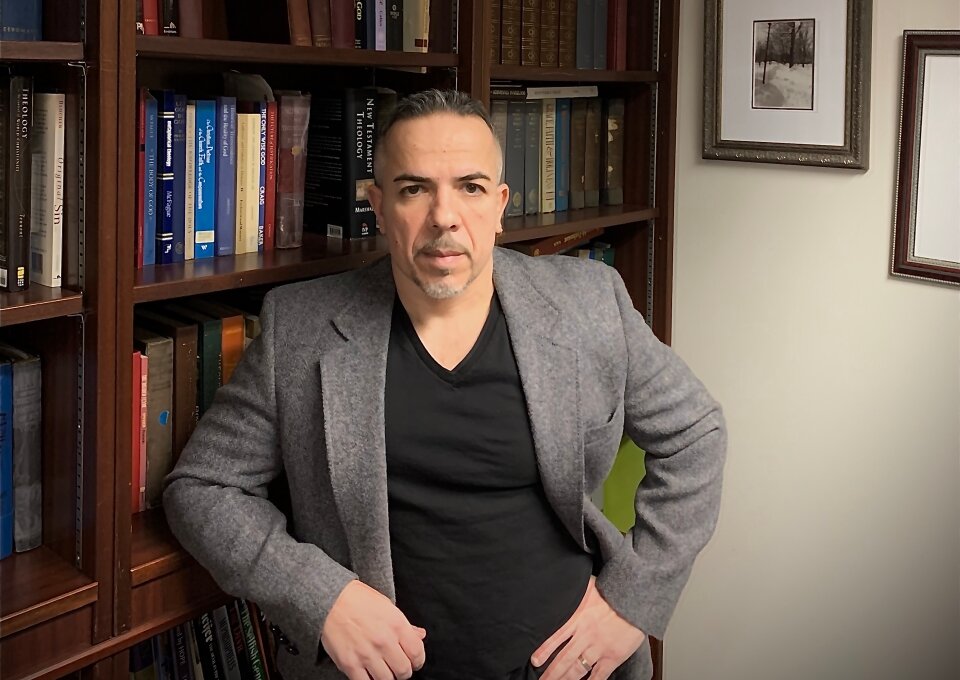
Christopher Zoccali, PhD
CATR General Editor
Northeastern Seminary
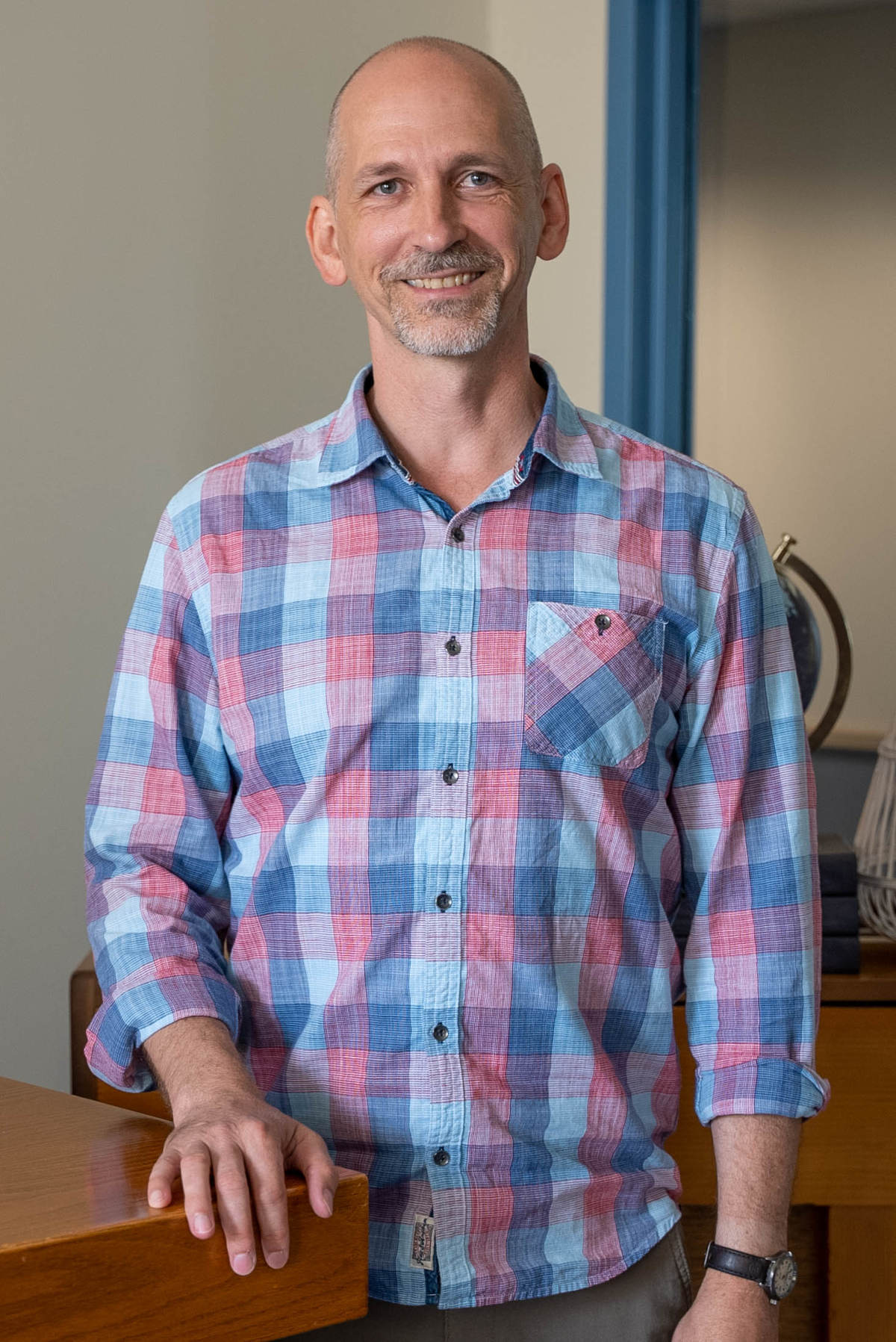
Josef Sykora, PhD
Rochester Conference Liaison
Northeastern Seminary

Electra Rozakis
Website and Social Media Manager

Dr. Franklin is a leader and bridge-builder engaging the church, the academy, and the public sphere. He is an expert in ecclesiology, trinitarian theology, Christian ethics, and the life and thought of Dietrich Bonhoeffer. His first book, Being Human, Being Church (Paternoster, 2016) explores how our conceptions of human personhood deeply impact our understanding and practices of community and church, personal and public ethics, and spirituality and social justice.

Cynthia Long Westfall is a graduate of Biola College (BA), Northern Arizona University (MA), Denver Seminary (MDiv), and University of Surrey Roehampton (PhD). She currently serves as Associate Professor of New Testament at McMaster Divinity College in Hamilton, ON. She is the author of Paul and Gender: Reclaiming the Apostle’s Vision for Men and Women in Christ (Baker Academic, 2016) and Discourse Analysis of the Letter to the Hebrews: The Relationship Between Form and Meaning (T. & T. Clark, 2006).

Lee Beach is a graduate of the Ambrose University (BRE), Tyndale Seminary (MDiv), and McMaster Divinity College (PhD) and currently serves as Associate Professor of Christian Ministry, Garbutt F. Smith Chair of Ministry Formation, and Director of Ministry Formation at McMaster Divinity College in Hamilton, Ontario. He is the author of The Church in Exile: Living in Hope After Christendom (Downers Grove: Intervarsity, 2015) and publishes and speaks regularly on Christian ministry and cultural formation.
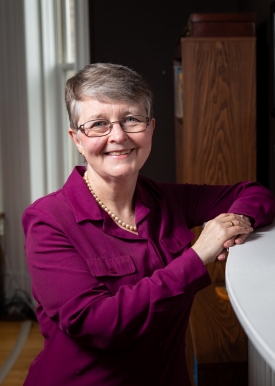
Marion Taylor is a graduate of the University of Toronto (BA, MA) and Yale University (STM, MA, MPhi., PhD). Her doctoral dissertation was written for Princeton Seminary under Brevards Childs. She has taught Old Testament at Wycliffe College since the 1980s and is the author of several books including co-author of Let Her Speak for Herself: Nineteenth-Century Women Writing on Women in Genesis (Baylor University Press), editor of Handbook of Women Biblical Interpreters (Baker), and co-editor the SBL Symposium Series Vol 38, Recovering Nineteenth-Century Women Interpreters of the Bible.

“Gus” Konkel is a graduate of Providence College (BRE), Providence Theological Seminary (MDiv), and Westminster Theological Seminary (PhD). After serving as a pastor for several years at Baptist and Mennonite churches, he joined the faculty of Providence Theological Seminary in 1984 and in 2001 he became President of Providence. Since 2012 he has been Professor of Old Testament at McMaster Divinity College, Hamilton, Ontario. He is the author of several books, including most recently 1 & 2 Chronicles (Believers Church Bible Commentary; Herald, 2016). He is the author of 1 & 2 Kings (NIV Application Commentary; Zondervan, 2006) and the section on Job in Job, Ecclesiastes, Song of Songs (Cornerstone Biblical Commentary; Tyndale House, 2006).

J. Richard Middleton is a graduate of Jamaica Theological Seminary (BTh), the University of Guelph (MA Philosophy), and the Vrije Universiteit, Amsterdam (PhD). He is Professor of Biblical Worldview and Exegesis at Northeastern Seminary, Rochester, NY, and adjunct Professor of Old Testament at the Caribbean Graduate School of Theology in Kingston, Jamaica. He previously taught at Roberts Wesleyan College, Colgate Rochester Crozer Divinity School, the Institute for Christian Studies, and Redeemer University College, and served as campus minister at four universities in Canada and the United States. He is the author of several books, including A New Heaven and a New Earth: Reclaiming Biblical Eschatology (Baker Academic, 2014), which won the (Canadian) Word Guild award for best book in Biblical Studies, and The Liberating Image: The Imago Dei in Genesis 1 (Brazos, 2005). He has co-authored (with Brian Walsh) The Transforming Vision: Shaping a Christian World View (IVP Academic, 1984) and Truth is Stranger Than It Used to Be: Biblical Faith in a Postmodern Age (IVP Academic, 1995), the latter of which received a Book-of-the-Year award (1996) from Christianity Today magazine.

Lee Beach is a graduate of the Ambrose University (BRE), Tyndale Seminary (MDiv), and McMaster Divinity College (PhD) and currently serves as Associate Professor of Christian Ministry, Garbutt F. Smith Chair of Ministry Formation, and Director of Ministry Formation at McMaster Divinity College in Hamilton, Ontario. He is the author of The Church in Exile: Living in Hope After Christendom (Downers Grove: Intervarsity, 2015) and publishes and speaks regularly on Christian ministry and cultural formation.
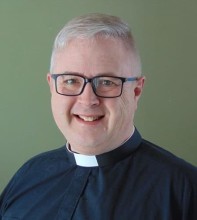
Tim Perry is a graduate of University of Durham (PhD). After serving as Associate Professor of Theology at Providence College and teaching at Wycliffe College, Perry was ordained in the Anglican Church in 2010 and began serving as Rector of Church of the Epiphany in Sudbury, Ontario Canada and as a lecturer at Laurentian University. He is also a participant in the re-launched ecumenical dialogue between the Anglican Communion and the Worldwide Communion of Reformed Churches. Dr. Perry is the author of several books, includingMary for Evangelicals (IVP), Pope John Paul II: An Evangelical Assessment (IVP), and Radical Difference: A Defense of Hendrik Kraemer’s Theology of Religions (Wilfrid Laurier University Press).

David Guretzki is a graduate of Briercrest Bible College (BRE), Briercrest Biblical Seminary (MA), and McGill University (PhD). He has served as professor of theology, church, and public life at Briercrest College and Seminary since 1993, where he is currently Dean. He is the author of Karl Barth on the Filioque (Ashgate, 2009) and co-author of the Pocket Dictionary of Theological Terms (IVP, 1999).
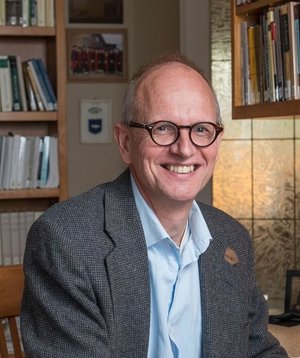
Hans Boersma is a graduate of Christelijke Academic (BEd), Lethbridge (BA), Theological College of the Canadian Reformed Churches (MDiv), and Utrecht University (MTh, ThD). Before becoming J. I. Packer Professor of Theology at Regent College, Vancouver, in 2005, Hans Boersma taught for six years at Trinity Western University in Langley, BC (1999–2005). He has also served as a pastor prior to that (1994–1998). He is the author of several books, including Violence, Hospitality and the Cross: Reappropriating the Atonement Tradition (Baker Academic, 2004), Nouvelle Théologie and Sacramental Ontology: A Return to Mystery (Oxford, 2009), Heavenly Participation: The Weaving of a Sacramental Tapestry (Eerdmans 2011), and Embodiment and Virtue in Gregory of Nyssa: An Anagogical Approach (Oxford Early Christian Studies, 2013).
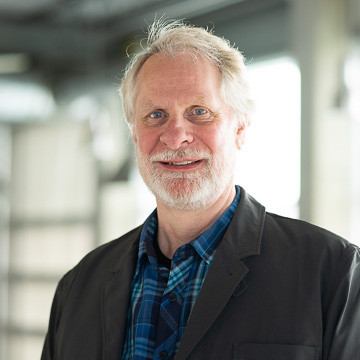
Doug Harink is a graduate of University of Winnipeg (BA Philosophy), Regent College (MCS Theology), and University of St. Michael’s College (MA, PhD Theology). He has received grants from the Pew Foundation, Templeton Foundation, the Council for Christian Colleges and Schools, and has served as a Scholar-in-Residence for Princeton’s Center of Theological Inquiry. He has served as the Dean of the Faculty of Arts and Professor of Theology at The King’s University in Edmonton, Alberta, and is the author of Paul Among the Postliberals (Brazos, 2003) and 1 & 2 Peter (Brazos Theological Commentary on the Bible, 2009).

Gordon T. Smith is a graduate of University of Regina (BA), Canadian Theological Seminary (MDiv), and Loyola School of Theology, Ateneo de Manila University (PhD). Since 2012, Dr. Smith has served as the President of Ambrose College University and Seminary in Calgary, Alberta, and regularly lectures at Regent College. He previously served full-time with the Regent faculty as the Academic Dean. He is an ordained minister with the Christian and Missionary Alliance. Dr. Smith is the author of a number of books, including Transforming Conversion: Rethinking the Language and Contours of Christian Initiation (Baker Academic, 2010).
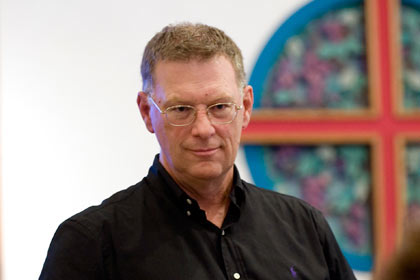
Glen G. Scorgie is a graduate of Canadian Bible College (BTh), Wheaton Graduate School (MA Christian Thought) and Regent College (MCS), and the University of St. Andrews in Scotland (PhD). He has served as Professor of Theology at Bethel Seminary in San Diego since 1996. Previously he was academic vice-president of North American Baptist College in Edmonton, Alberta. He is the author of several books including The Journey Back to Eden: Restoring the Creator’s Design for Women and Men (Zondervan, 2005).
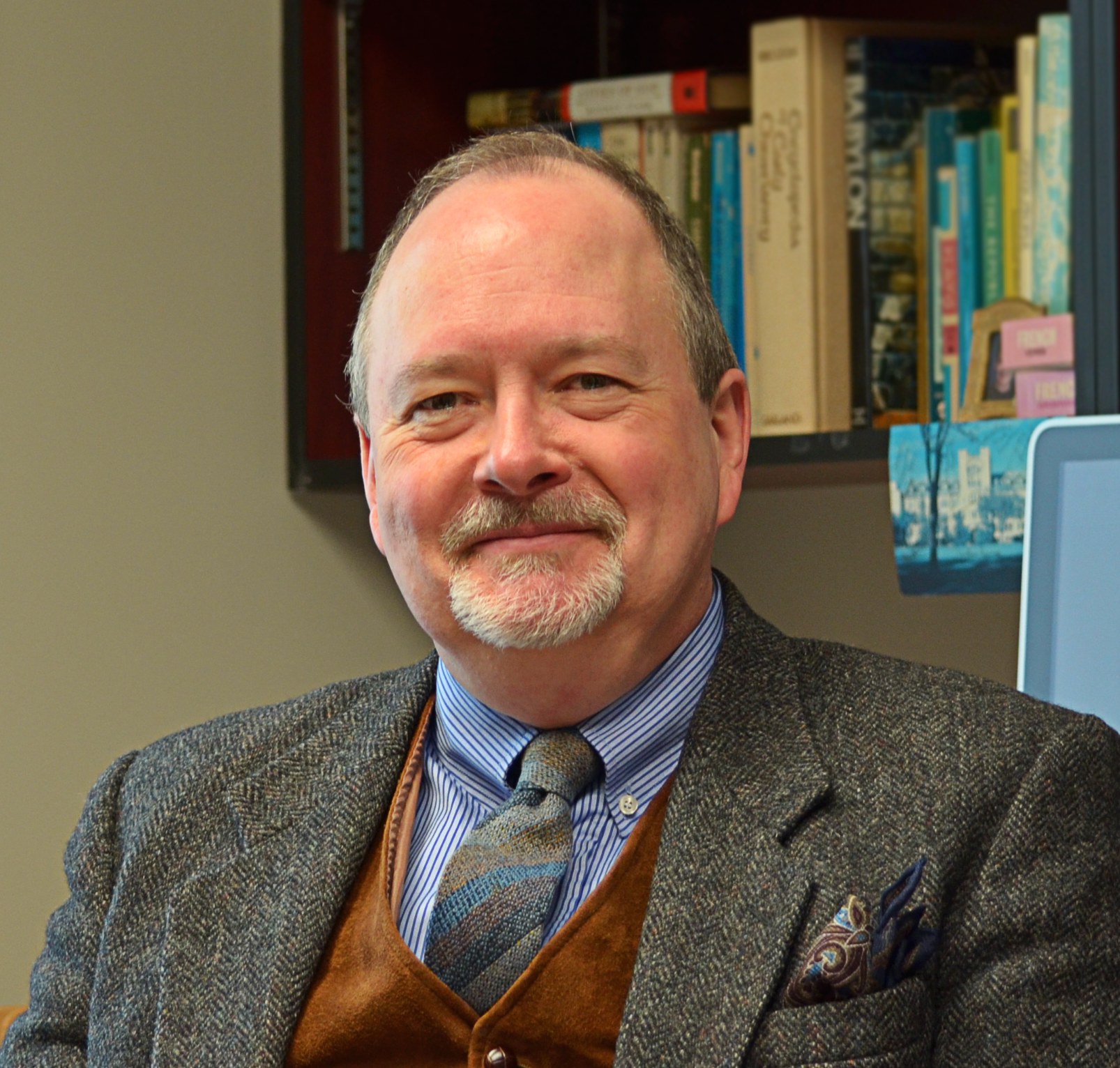
John G. Stackhouse, Jr., is a graduate of Queen’s University at Kingston, Ontario (BA History), Wheaton College Graduate School, Illinois (MA Theological Studies), and The University of Chicago (PhD History and Theology of Christianity). Since 2015 he has been the Samuel J. Mikolaski Professor of Religious Studies and Dean of Faculty Development at Crandall University, Moncton, New Brunswick. He was previously the Sangwoo Youtong Chee Professor of Theology and Culture at Regent College, and before that he taught European history at Northwestern College in Iowa and Modern Christianity at the University of Manitoba. Dr. Stackhouse is the author of several books, including Making the Best of It: Following Christ in the Real World (Oxford University Press, 2011); Humble Apologetics: Defending the Faith Today (Oxford University Press, 2006); and Finally Feminist: A Pragmatic Christian Understanding of Gender (Baker Academic, 2005).
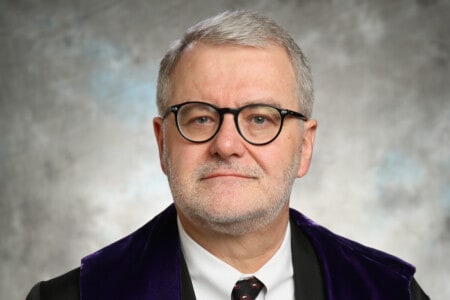
John Vissers is a graduate of the University of Toronto (BA), Knox College (MDiv), Princeton Theological Seminary (ThM), and the Toronto School of Theology (ThD). In 2012 he was awarded an honorary doctorate in sacred theology (DD) from the Montreal Diocesan Theological College affiliated with McGill University for his contributions to Reformed theology and ecumenical theological education. John is a member of the Presbytery of Oak Ridges and served as Moderator of the 138th General Assembly of The Presbyterian Church in Canada (2012-2013). Previously he served as Principal of the Presbyterian College, Montreal at McGill University (1999-2013); Senior Minister at Knox Church, Toronto (1995-1999); and Professor of Systematic Theology at Tyndale Seminary (1987-1995). In 2013, he became the Director of Academic Programs and Professor of Historical Theology for Knox College.
Rooted in the evangelical tradition and recognizing the need to provide a context in which scholars with a common commitment to the Christian faith may make scholarly contributions to the renewal of theology and the church in Canada and the USA, we agree to establish an association in accordance with the guidelines in CATA’s Constitution.
I believe in God, the Father almighty,
creator of heaven and earth.
I believe in Jesus Christ, his only Son, our Lord,
who was conceived by the Holy Spirit
and born of the virgin Mary.
He suffered under Pontius Pilate,
was crucified, died, and was buried;
he descended to hell.
The third day he rose again from the dead.
He ascended to heaven
and is seated at the right hand of God the Father almighty.
From there he will come to judge the living and the dead.
I believe in the Holy Spirit,
the holy catholic* church,
the communion of saints,
the forgiveness of sins,
the resurrection of the body,
and the life everlasting. Amen.
We believe in one God, the Father almighty, Creator of heaven and earth, of all things seen and unseen.
We believe in one Lord, Jesus Christ, the only son of God, begotten of the Father before all time, light from light, true God from true God, begotten not created, of the same essence as the Father. Through him all things came into being, who for us and for our salvation came down from heaven and was incarnate by the Holy Spirit and the virgin Mary, and became human. He was crucified for us under Pontius Pilate, and suffered and was buried. He rose on the third day according to the Scriptures, ascended into heaven, and is sitting at the right hand of the Father. He will come again with glory to judge the living and the dead. His kingdom will have no end.
We believe in the Holy Spirit, the Lord and Giver of life, who proceeds from the Father [and the Son] and is worshipped and glorified together with the Father and Son, and who spoke through the Prophets.
We believe in one, holy, catholic and apostolic Church. We confess one baptism for the forgiveness of sins, and we look forward to the resurrection of the dead and the life of the world to come. Amen.
Join the CATA email community to receive our newsletter and updates!
© 2025 The Canadian-American Theological Association